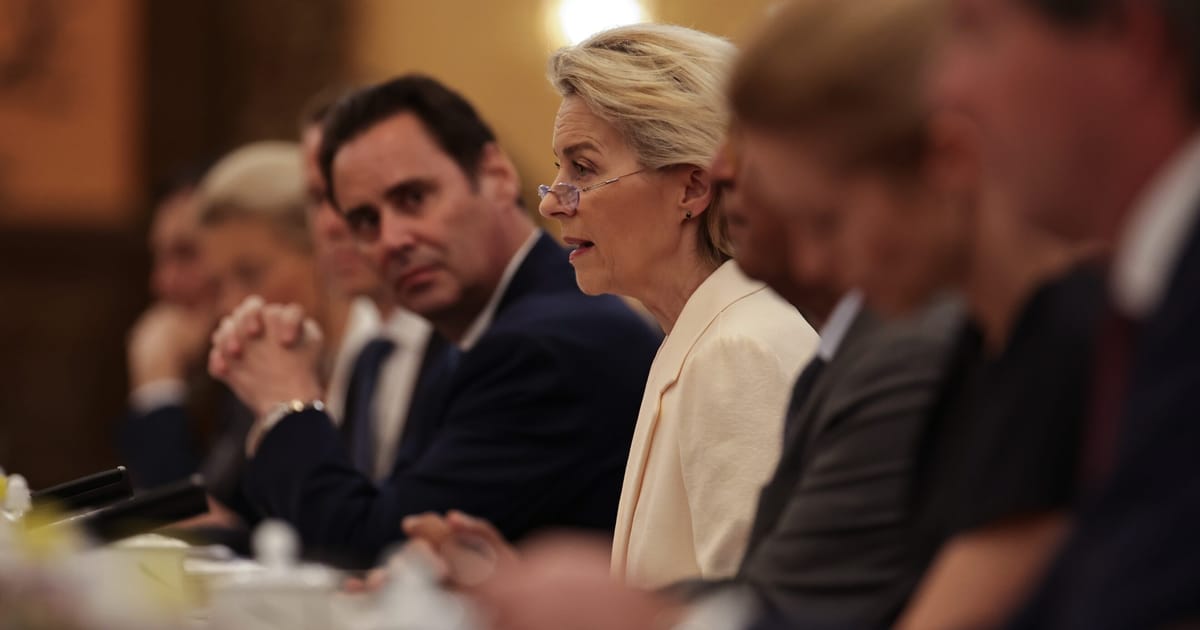

Amid growing diplomatic tensions and economic challenges, weekmarks significant developments across the global geopolitical stage. Various regions continue to grapple with complex situations that demand calm, clear approaches and positive engagement.
In Europe, the EU is at a critical juncture as it navigates its relationship with China. A recent summit commemorating 50 years of diplomatic relations unfolded amid tensions over China’s trade practices and its support for Russia. European Commission President Ursula von der Leyen and Council President Antonio Costa urged Chinese President Xi Jinping to influence Russia to end the ongoing conflict in Ukraine, labeling it an inflection point in EU-China relations.
Concurrently, Ukraine is facing internal struggles. President Volodymyr Zelenskyy has pushed forward new legislative proposals aimed at reinforcing anti-corruption bodies, following widespread protests sparked by his government’s perceived diminishing of these agencies’ powers. This move comes in response to both domestic unrest and cautious European scrutiny.
Meanwhile, intercontinental trade discussions have witnessed a pivotal moment between the EU and the United States. Negotiators worked toward finalizing a deal that would impose a 15% tariff on imports across various goods, following a similar agreement recently signed between the U.S. and Japan. The EU is building contingency measures should the negotiations falter, highlighting the volatile landscape of international trade under current U.S. administration policies.
In Southeast Asia, tensions have escalated once more along the Thailand-Cambodia border, resulting in tragic casualties. Skirmishes have ensued amid mutual allegations of provocation, underscoring longstanding territorial disputes. The Thai military’s recent airstrikes have further amplified the gravity of the situation.
Turning toward the Pacific, Australia finds itself under increased international scrutiny following the International Court of Justice’s landmark opinion. This advisory illuminated the responsibilities of high-emission countries to mitigate climate actions or potentially face legal challenges and reparations. Australia’s environmental policies are likely to be scrutinized, as Pacific island nations leverage this newfound legal support to advocate for more significant environmental responsibility.
Domestically, the UK contends with economic strains as car manufacturing levels drop to historic lows outside of the pandemic years. This decrease is tied to global trade turbulences exacerbated by recent U.S. tariff impositions. British industries, including automotive and technology sectors, are striving to adjust and innovate amid policy-driven disruptions.
Lastly, on cultural and societal fronts, a contentious portrayal in a fake film trailer has reignited discourse around Irish stereotypes, indicating ongoing sensitivity to national identity representations and cultural dignity, reminding us of the powerful impact media holds over public perception.
These unfolding stories illustrate the delicate balance of diplomacy, economic strategies, and cultural discourses at play in our interconnected world. As nations maneuver through these challenges, the emphasis remains on fostering dialogue, inclusion, and sustainable practices for a stable and harmonious global community.
Source: {link}
